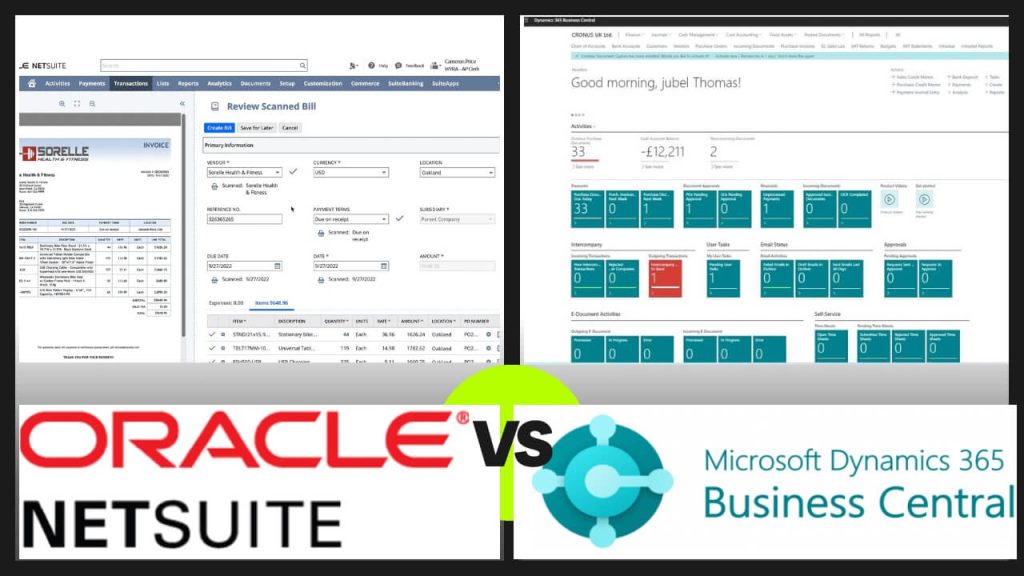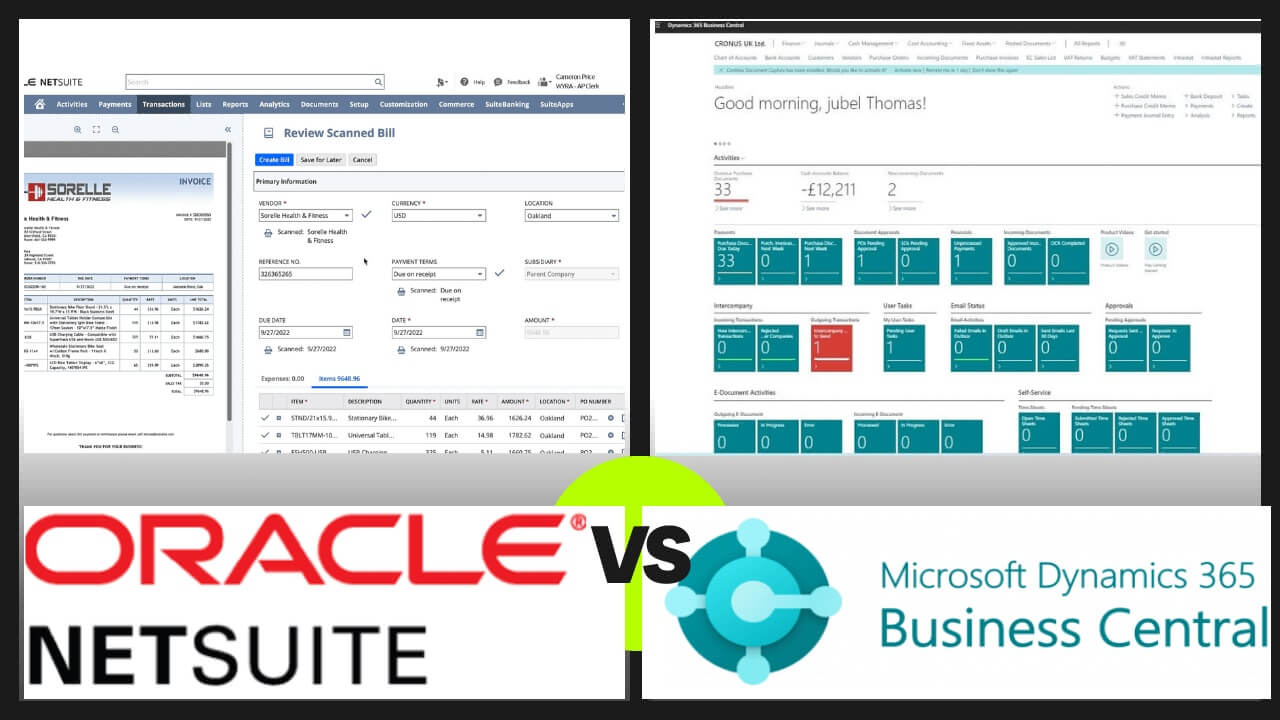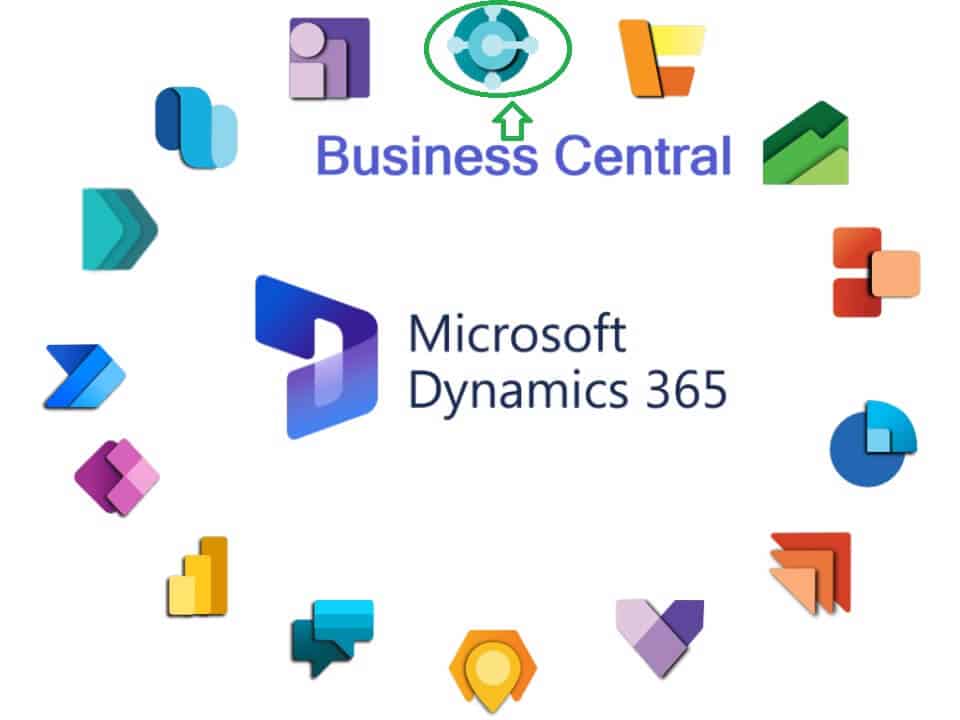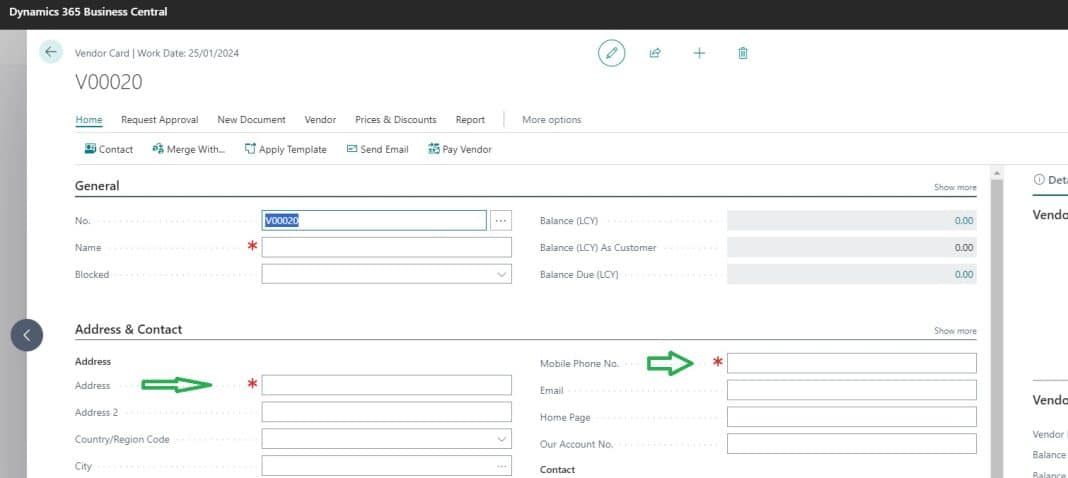Microsoft Dynamics 365 Business Central and NetSuite are both popular cloud-based business management solutions, but they have some differences.
Table of Contents
Table Comparison of Microsoft Dynamics 365 Business Central vs Netsuite
Easy table comparison details between both ERP products are as follows:
| Aspect | NetSuite | Dynamics 365 Business Central |
|---|---|---|
| Company | Developed by Oracle | Developed by Microsoft |
| Deployment | Cloud and On-Premises | Primarily Cloud |
| Cloud Deployment | Microsoft Azure | Oracle Cloud |
| Target Audience | Small to large enterprises | Small and medium-sized businesses (SMBs) |
| Features | Comprehensive, including ERP, CRM, e-commerce, HR, etc. | Financial management, supply chain, sales, customer service, etc. |
| Integration | Robust integration capabilities, pre-built connectors, APIs | Integrates well with Microsoft products and services |
| Customization | High level of customization and flexibility | Customization options with user friendliness. Highly customizable with SuiteScript. |
| Licensing and Pricing | Modular Pricing Structure | Subscription-based, Varies by Users/Modules |
| Ease of Use | May have a steeper learning curve due to extensive features | User-friendly, designed for ease of use and customization |
| Scalability | Suitable for small to large enterprises | Designed for scalability, but primarily targeted at SMBs |
| Artificial Intelligence | Business Central supports several advanced features of AI | Less AI features available when comparing to BC. |
| Industry Focus | Broad range of industries | Versatile, with a focus on SMBs. E-commerce, Retail, Professional Services. |
| Ecosystem | Part of the Oracle ecosystem | Part of the Microsoft ecosystem |

Detailed comparison information is as follows exclusively for you:
1. Creator and Background:
- Microsoft Dynamics 365 Business Central:
- Made by Microsoft.
- Works well with other Microsoft stuff.
- Often chosen by those who already use Microsoft things.
- NetSuite:
- Owned by Oracle.
- Does a lot in the cloud.
- Known for being able to grow and change.
2. Where It Lives:
- Microsoft Dynamics 365 Business Central:
- Can be in the cloud or on a computer at the office.
- A lot of folks like the cloud option.
- NetSuite:
- Mostly lives in the cloud.
- You don’t need a big computer system in your office.
3. Size it Works for:
- Microsoft Dynamics 365 Business Central:
- Good for small and medium-sized businesses.
- Might not be best for really big companies with complicated needs.
- NetSuite:
- Works for small and big companies.
- Good if your business is really complicated.
4. Making it Fit You:
- Microsoft Dynamics 365 Business Central:
- You can change a lot to make it fit your business.
- Plays well with other Microsoft things.
- NetSuite:
- You can change a lot to make it fit your business.
- There’s a special way to write code (SuiteScript) for extra changes.
5. What It Looks Like:
- Microsoft Dynamics 365 Business Central:
- Looks like other Microsoft stuff.
- Easy for people who know Microsoft things.
- NetSuite:
- Looks easy, shows lots of info.
- Might take some learning if you don’t know Oracle stuff.
6. How Much It Costs:
- Microsoft Dynamics 365 Business Central:
- You pay for what you need.
- Might cost more or less based on how many people use it and what parts you want.
- NetSuite:
- You pay each month.
- The cost depends on how many people use it, what parts you want, and if you change it a lot.
7. Working Together:
- Microsoft Dynamics 365 Business Central:
- Works well with Microsoft things.
- Can also connect with other stuff outside Microsoft.
- NetSuite:
- Connects well with different things.
- There’s a special place (SuiteCloud) to add more stuff.
8. Who Likes It:
- Microsoft Dynamics 365 Business Central:
- Used in many kinds of businesses.
- Good for making and selling things.
- NetSuite:
- Liked by businesses with hard financial and business needs.
- Popular in online stores, regular stores, and services.
Conclusion:
Choosing between Microsoft Dynamics 365 Business Central and NetSuite depends on what your business needs and what you like. Both are good but have different strengths and weaknesses. Think about your business and maybe talk to experts to pick the one that fits best.





